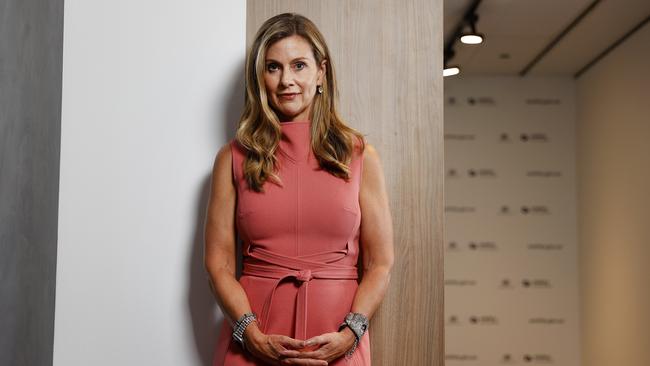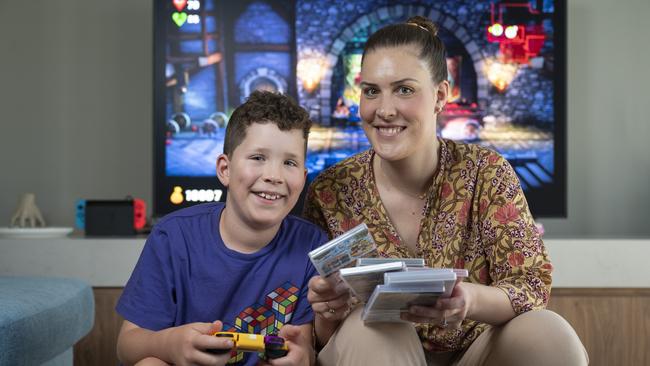Why you should play computer games with your kids
New Australian research has revealed some surprising results about children and gaming. See state by state analysis.
National
Don't miss out on the headlines from National. Followed categories will be added to My News.
Exclusive: Children whose parents play computer games with them are more likely to stay safer online than those who don’t.
New Australian research found that kids whose parents are involved with their gaming are more likely to tell an adult if they experienced online abuse, helping to prevent it escalating.
The online safety watchdog found nine in 10 young Aussies aged between eight and 17 gamed in the last year, while two thirds spent more than six hours per week gaming.
More than four in 10 gamers said they’d been exposed to bullying, racism, self-harm or sexism while playing online.
“Young people who had experienced online abuse were more likely to have opened up about it if their parent had engaged with them previously about their gaming,” eSafety Commissioner Julie Inman Grant said.
“Almost two in five of all young gamers told us they would like their parents and carers to play online games with them. This jumps to just over half of pre-teen gamers.”

She urged parents to “co-view and co-play online games” with their kids and be more involved in their online lives.
A state by state analysis found a higher percentage of Queensland gamers (44 per cent) had been bullied or had a negative experience compared with those in South Australia (43 per cent), NSW (42 per cent) and Victoria (39 per cent).
In the 13 to 17 age group three in 10 said they had been exposed to harmful ideas such as boys or men being better than girls or women, ways people can die by suicide, how to self harm, sharing violent pictures or videos or encouraging illegal activities.
Queensland teens were least likely to be exposed to harmful ideas (22 per cent). In NSW 31 per cent of teen gamers had come across harmful ideas online and in Victoria it was 32 per cent. Figures in South Australia were too small for analysis.
Meanwhile parents confessed the impact of gaming was a top concern for them, according to the online safety watchdog’s research.
But the results showed children believed there were many benefits to gaming.
More than four in 10 kids said gaming benefited their emotional wellbeing, with six in 10 saying it improved their social connection.
Eight in 10 said gaming helped them develop skills or learn something new.
“Our research highlighted the common paradox of the online world: there are some serious risks we need to know about but there are also some incredible benefits – and this was clearly articulated by young people themselves,” Ms Iman Grant said.
“Online gaming makes young people happy and provides relief from tough times.”
Mum Melissa McDonald, 36, from Canberra, games with her son John, nine, once a week at the weekend. He is not allowed to play on school days. In the holidays she plays a little more with him.

She decided to tighten up their online security and put in some boundaries after she realised John, then aged six, had accessed an online world on Roblox via a tablet without her knowing. When she investigated she could see that someone was sneakily trying ways to engage with kids.
She asks John about what he was playing online, and having grown up gaming herself, said it was helpful that she knew the terminology.
When she games with him, they talk about appropriate behaviour online, which can lead to more general discussions.
One thing she doesn’t do is let him win.
“He has to win on his own merit,” Ms McDonald said. “But when he does beat me, he takes great pleasure in it.”





